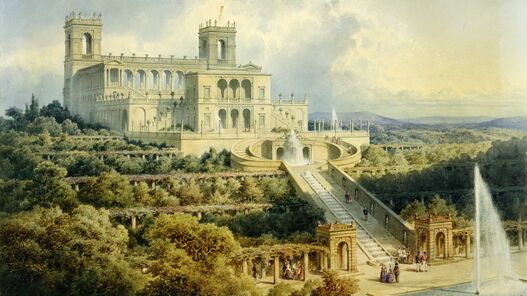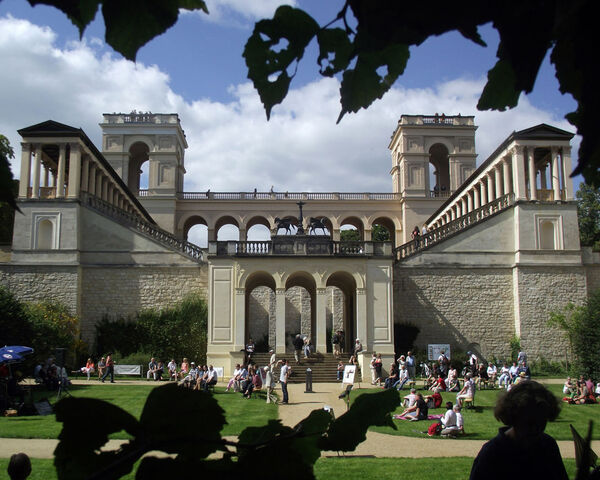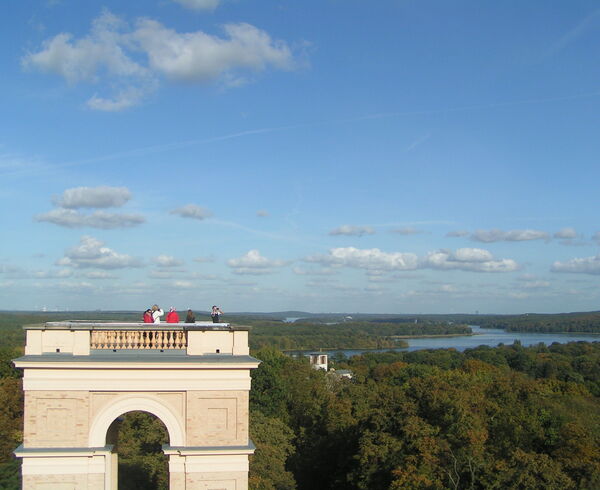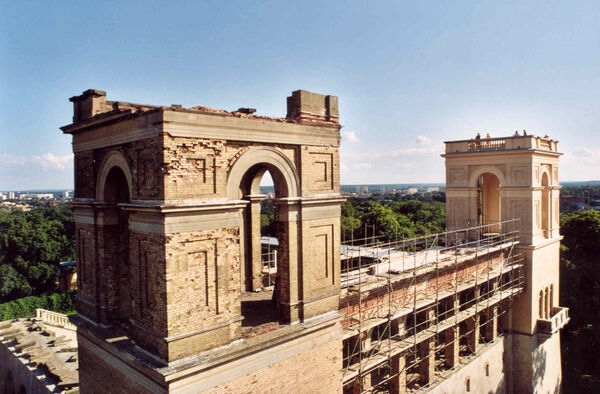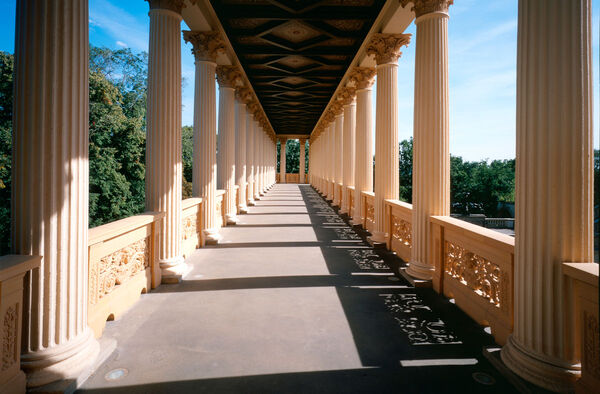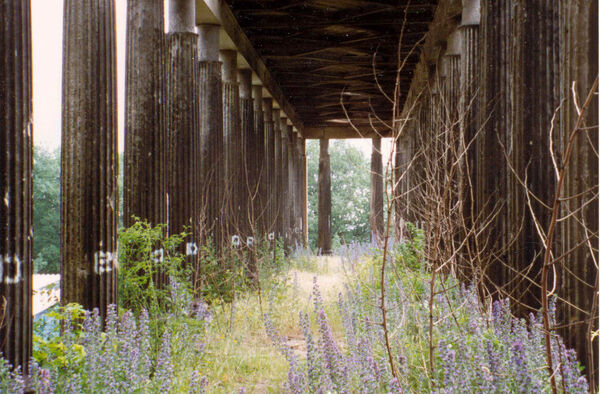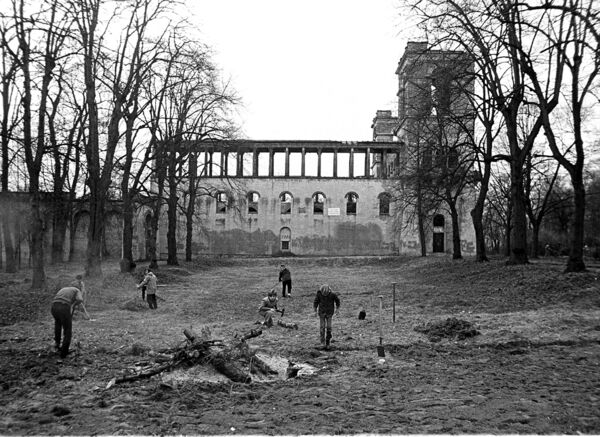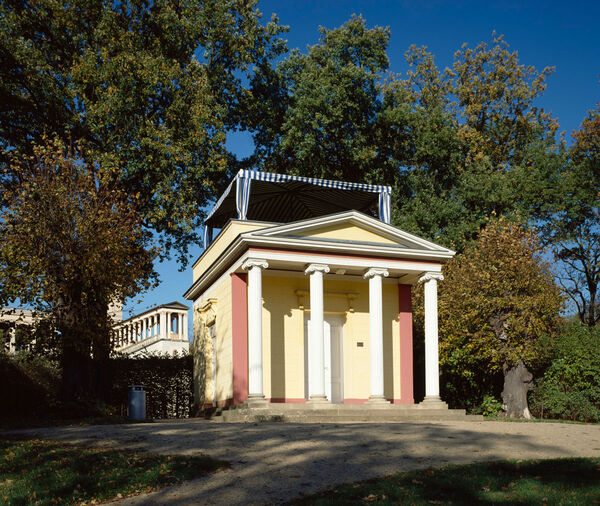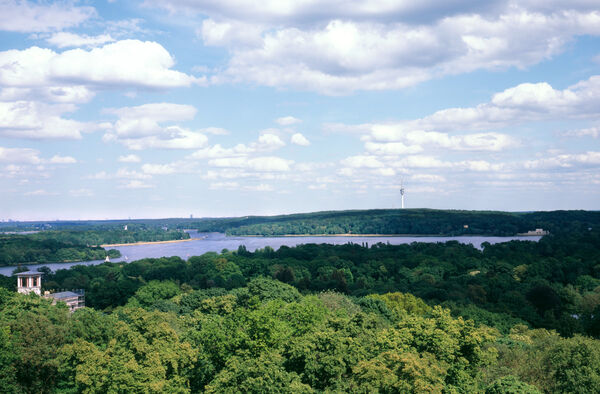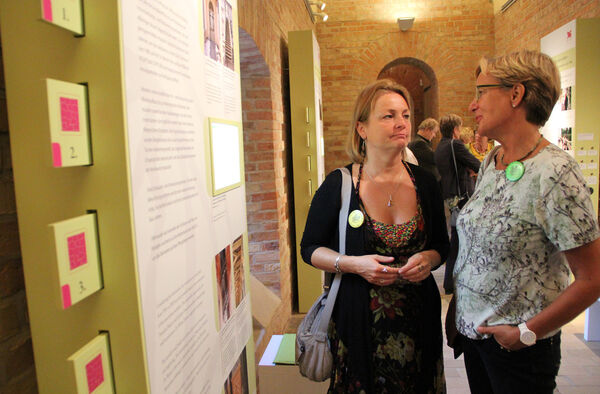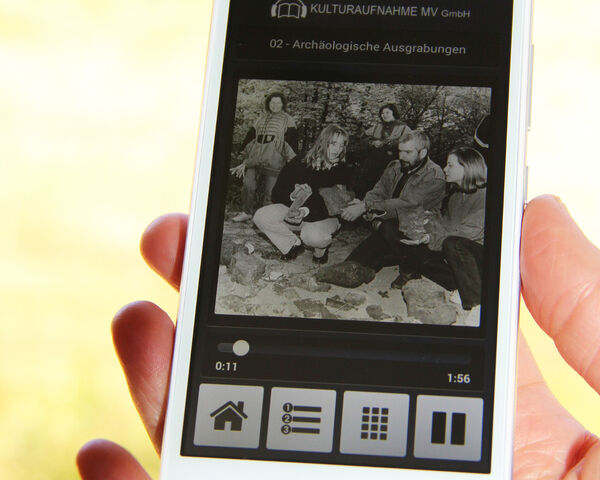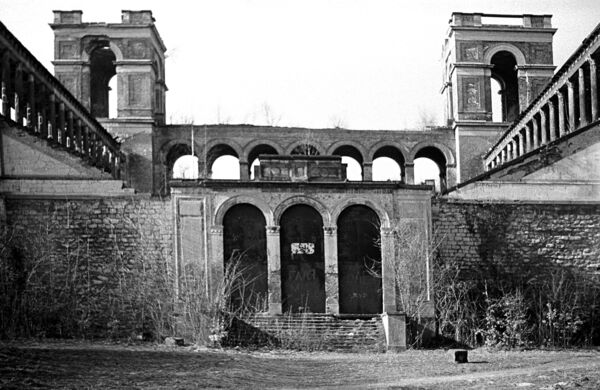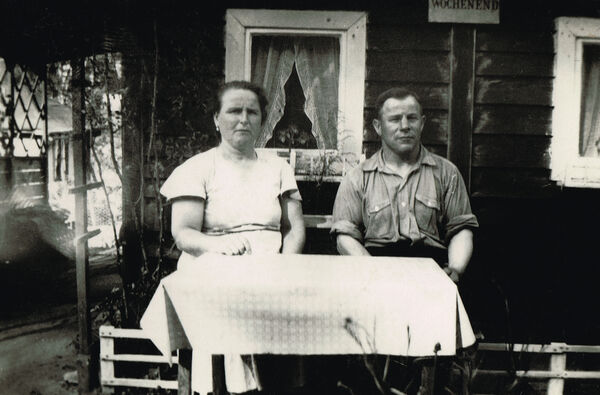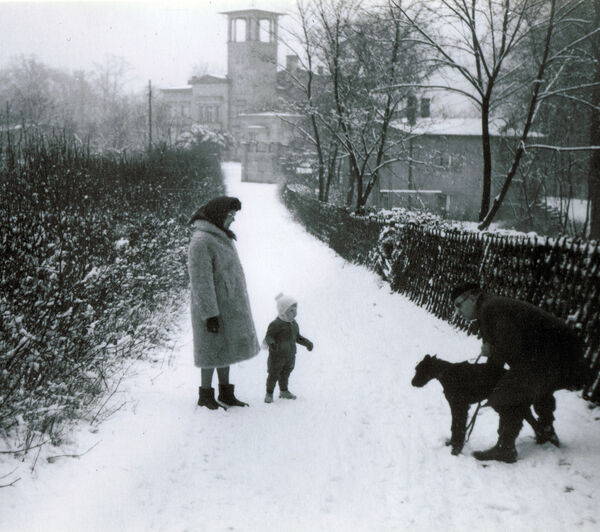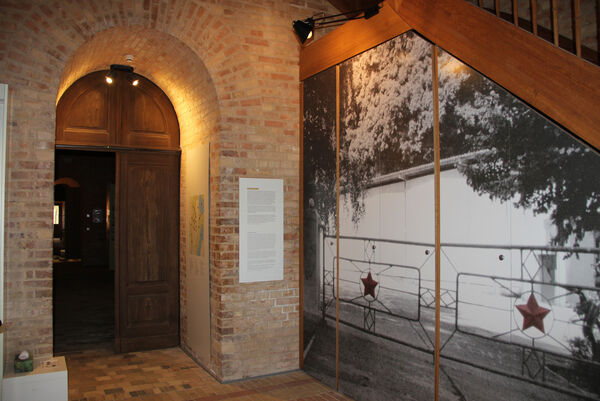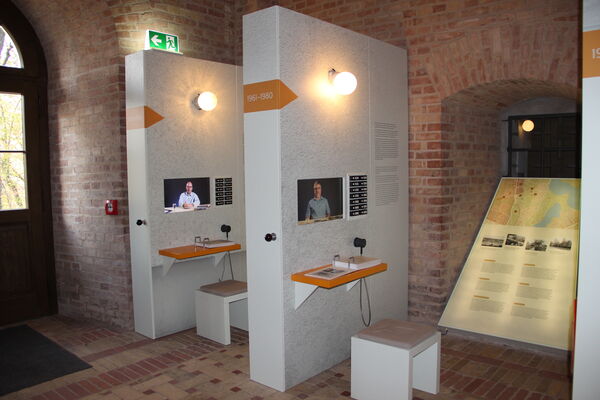The Eventful History of the Pfingstberg Ensemble
Potsdam Visions with a View
This permanent exhibition provides remarkable insights into the most incisive phases in the history of the ensemble: the Pfingstberg as it existed before the Belvedere was built; the collaboration between its builder Frederick William IV and his architects; the site’s lack of historic preservation under the GDR; and the changes brought about through the founding of the Pfingstberg Association (Förderverein Pfingstberg). Illuminated architectural plans and visual representations from diverse epochs allow the palace architecture to be studied in detail. Frederick William IV, a visionary and German Romantic, expresses his views right at the beginning – while at the end, those who are involved today, the supporters and eyewitnesses of the site’s rebuilding and renovations, share their experiences in moving and emotional accounts.
Amidst Allotment Gardens and a Russian Commissary:
Everyday Life at Potsdam’s Pfingstberg, 1945‒1994
This exhibition of eyewitness accounts (opened in 2020) allows those who lived and worked in the immediate vicinity to have their say.
The background is provided by the Potsdam Conference, which took place in 1945 at Cecilienhof Palace – near the Belvedere Palace on Pfingstberg. The conference symbolizes the beginning of the Cold War, and the “Potsdam Agreement” set in motion at this event divided Germany and the rest of the world into two camps. It greatly affected the daily lives and situation of those in the areas surrounding the Pfingstberg, which had become a restricted area. Local residents abruptly found themselves very close to the guarded border to West Berlin as well as the “Militärstädtchen Nr. 7” (Military village no. 7), with a prison run by the KGB Soviet secret service and central headquarters for counterintelligence surrounded by barbed wire. What it was like to suddenly have Russian soldiers as neighbors, to shop at the “Russian Commissary” ‒ a Soviet “PX-like warehouse” intended as a retail store mainly for the military ‒ or the role played by the allotment gardens on and around Pfingstberg, can be experienced in lively interviews with eyewitnesses. The stories, recalling the end of the war, the Soviet occupation or of carefree childhoods, are told in sad and moving, but also uplifting and humorous recollections.
Belvedere Pfingstberg
Pfingstberg
14469 Potsdam
Further information about the location
Directions
Public Transportation
Stop "Potsdam, Puschkinallee", "Potsdam, Am Schragen"
vbb-online | Timetable information
Traffic information
www.mobil-potsdam.de
Parking
Public parking at Volkspark (15 minutes walk)
Open on holidays such as Sundays.
- conditionally barrier-free

